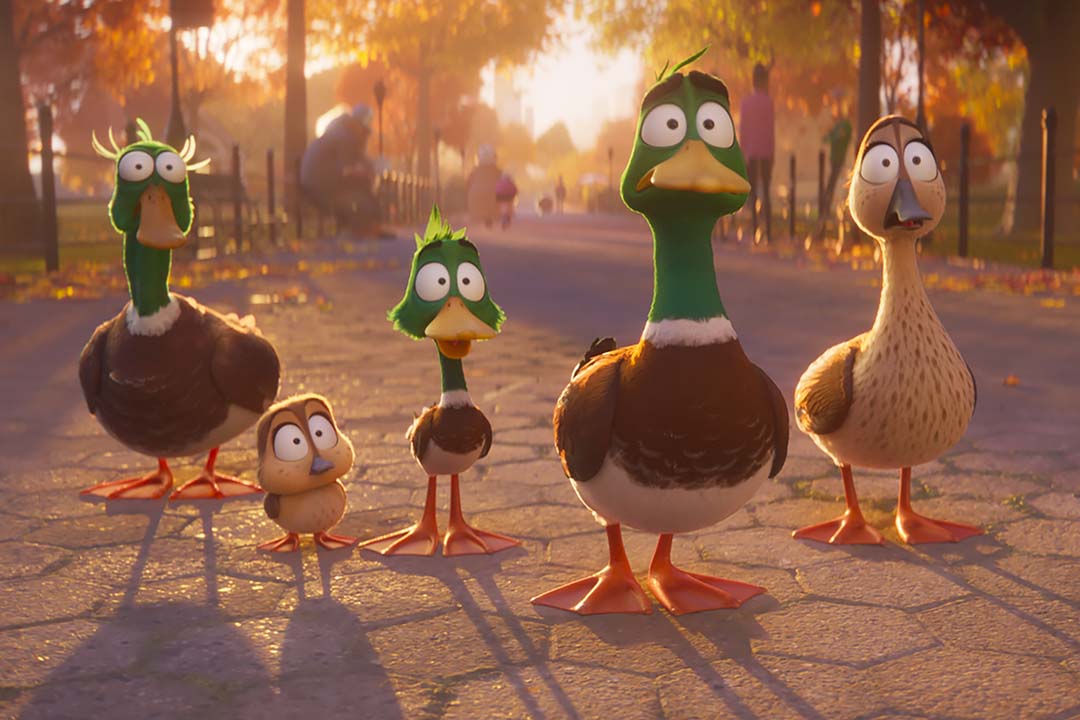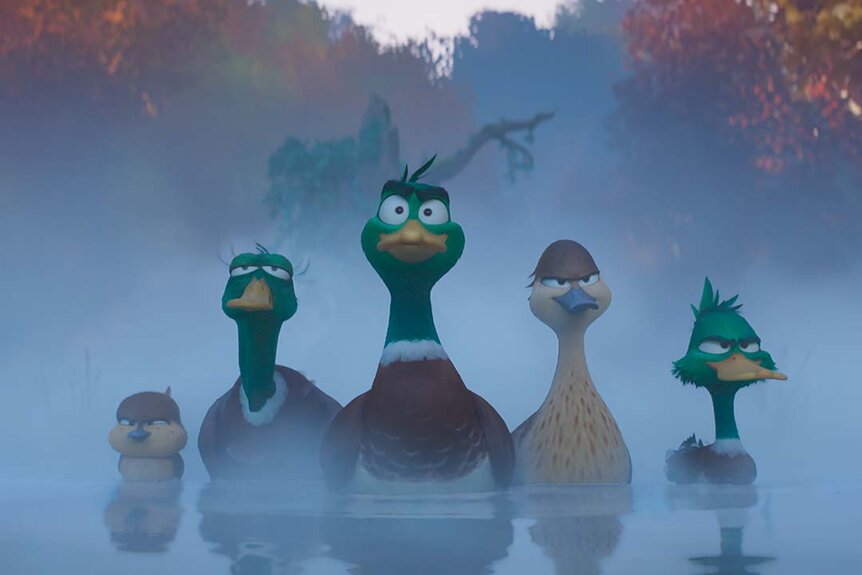Create a free profile to get unlimited access to exclusive videos, sweepstakes, and more!
How Smart Are Ducks? The Science Behind the Animated Avian Adventure Migration
Migration is a movie all about ducks. They live their whole lives in parks eating bread. Ducks are geniuses!

How much have you ever paid attention to ducks? We see them flying in formation and swimming in streams or ponds, little more than set pieces for suburban life. Every now and again we might go to a park and toss cornmeal or breadcrumbs and watch the birds lap up the loot, but how much do we really know about what’s going on inside their heads?
Illumination and Universal Pictures’ upcoming animated family film, Migration, follows a family of city ducks called the Mallards. They hang out all year round in a New England pond where they have everything they could possibly need, except for excitement. When a migrating family of ducks show up to the pond, telling tales of the wider world, the Mallards decide to depart on the trip of a lifetime.
With performances from Kumail Nanjiani, Elizabeth Banks, Caspar Jennings, Tresi Gazal, Danny DeVito, Keegan-Michael Key, and Awkwafina, Migration imagines a global society of ducks with rich inner lives. Real world ducks may not be quite as smart as the characters onscreen, but science has shown us that when it comes to ducks, they are no bird brains.
Ducklings are Capable of Abstract Reasoning
We’ve all heard stories about ducks imprinting on other bird species, convincing facsimiles, or people, basically anything that moves. Some people have interpreted those accidental imprints as evidence that ducks lack intelligence. After all, it doesn’t seem difficult to tell the difference between a person and another duck. In actuality, their ability to imprint so flexibly might be evidence of complex abstract reasoning.
RELATED: Who You Calling Bird Brain? Turns Out Avian Minds Are Way More Efficient Than Ours
In a 2016 study published in The Journal Science researchers put the abstract reasoning of ducklings to the test. Newly hatched ducks were presented with a couple of objects which were either the same or different. Some ducks were shown two spheres while others were shown a cube and a pyramid, for example. Later, they showed the ducks another set of objects, and again they were either the same or different.
If a duckling was originally shown two spheres, and later given a choice between two cubes or a sphere and a pyramid, they would choose the two cubes. This suggests that ducklings are capable of understanding the abstract concepts of sameness and difference. Sure, they’re paying attention to the shape of the objects, but they’re also paying attention to the relationship. Other animal species, mostly primates, have exhibited similar levels of abstract reasoning but only after training and reward. Ducklings do it straight out of the box. Smart!
Ducks are Smart Enough to Sleep with One Eye Open
Ducks also have a brilliant way to make sure they get their beauty rest while avoiding predators. We’ve known for decades that many animals, including ducks, are capable of sleeping with half of their brains at a time but we weren’t quite sure why. A 1999 study suggests sleeping with one eye open is a clever way to avoid being eaten during a nap.
Researchers placed four clear tanks next to one another and put one duck inside each. Unable to escape, this created a scenario in which two ducks were sandwiched in the interior with another two at the edges. Four ducks in a row. When it came time to rest, the ducks in the middle closed both of their eyes and drifted off to sleep but the ducks on the outside kept half of their brains awake. Even more telling, the eye they kept open was always the eye facing the outside of the group. When the ducks switched positions, they always slept according to their position in the group, either fully resting or keeping an eye out on behalf of the flock.
Brain scans of the guard ducks during these periods confirmed that the half of the brain controlling the open eye had activity levels consistent with wakefulness. The other half of the brain behaved as if asleep. Even when half asleep, guard ducks reacted un under a fifth of a second when presented with an image of a predator.
When ducks sleep, they’re aware of potential danger and make concessions to stay safe. More than that, they are aware of their position and role within the group and the flock works together to keep everyone well rested and alive. If that’s not smart we don’t know what is.
See the intelligence of ducks yourself in Migration, in theaters December 22, 2023.



























